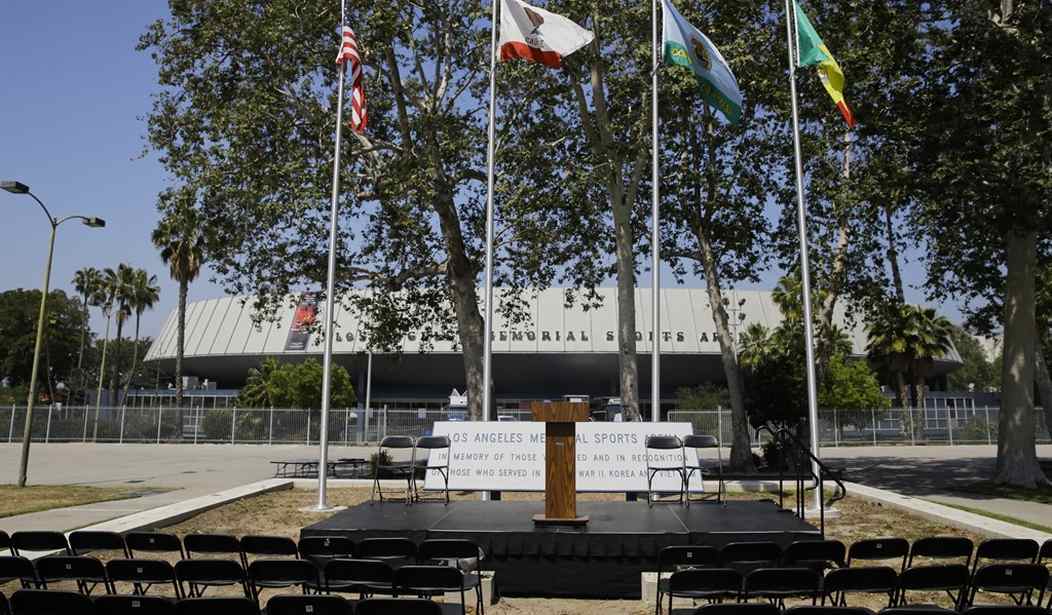In preparation for Donald Trump's acceptance speech tonight at the Republican National Convention and the Democrat's convention next week, we decided to take a look at some great political speeches in movies. These well-known onscreen speeches address subjects as disparate as network news, ending slavery and the prevention of an alien invasion.
What they all have in common though is passion. Each of the speakers — whether they be fictional characters or characters based on real political figures — is passionate about their beliefs and values.
With that in mind, here’s a list of great political movie speeches. You may not agree with the sentiments laid out in all of them but each of these memorable speeches will be hard to forget.
Mr. Smith Goes to Washington (1939): Frank Capra's classic film about an appointed first-term Senator is a must-see for anyone who wants to become involved in the political arena. The feature stars Jimmy Stewart as an idealistic man who enters politics believing in the goodness of people.
He finds corruption and immorality in Washington D.C. The idealistic politicianfights to maintain his integrity despite the critics who want to see him fail. To prove his innocence against charges of corruption, Smith stages an unforgettable filibuster leading to one of the most compelling political speeches ever presented on the big screen.
The Great Dictator (1940): The United States didn't enter World War 2 until 1941 but this 1940 American war comedy offered a glimpse of what was at stake. Chaplin stars here as both a brutal dictator and as an innocent Jewish barber (who closely resembles the dictator), who is prosecuted for his religious beliefs.
In the end, the barber gets mistaken for the dictator and gets the opportunity to speak up to the crowd. "I don't want to rule or conquer anyone," he says, "I should like to help everyone if possible." The film, which had shown the worst of humanity in the dictator's actions, ends on a high note as the barber uses his opportunity at the microphone to bring people together rather than tear them apart.
Recommended
Air Force One (1997): Harris Ford stars in this 1997 blockbuster about a president who is forced to take on a group of terrorists after Air Force One is hijacked. Before that attack though, the president addresses the world community in a speech where he says that he will no longer negotiate with terrorists.
"Atrocity and terror are not political weapons and to those who would use them, your day is over" he says. His promise is tested when his family is held hostage and the president is forced to make some extremely difficult decisions.
The King's Speech (2010): Based on a true story, this best picture Oscar winner focused on the importance of one single speech. King George VI (played here by Colin Firth) was attempting to bring his country together at the beginning of World War II but a stammer prevented him from sounding as strong as he wanted to be.
With the help of a speech therapist, the king eventually overcomes the stammer to give the political address of his life. "If one and all we keep resolutely faithful to it, then with God's help, we shall prevail," he says, uniting the country behind his leadership before the difficult days ahead.
Lincoln (2012): In Steven Spielberg’s historical drama Lincoln, the 16th President (played by a terrific Daniel Day-Lewis) wants to free the slaves with a constitutional amendment at the end of the Civil War. His political adversaries and even his allies question his goals but the president keeps pressing forward.
When confronted with cynics on all sides, the president presses his case for the immediate passage of the 13th Amendment. "Blood's been spilled to afford us this moment. Now. Now. Now," he shouts letting his allies know he does not want the moment to pass them by.
Selma (2014): David Oyelowo stars as the Reverend Martin Luther King Jr. in this Oscar-nominated film about the famous civil rights march in Selma. Although politicians and the police reject King's rhetoric, he urges his allies to fight on against injustice even if it meant they would face threats and persecution.
"We will not wait any longer. Give us the vote," he says in a compelling address to his allies. The leader knows that they will be met with protests and possibly violence but he also knows that in order to succeed, they cannot back down from their core beliefs.
























Join the conversation as a VIP Member